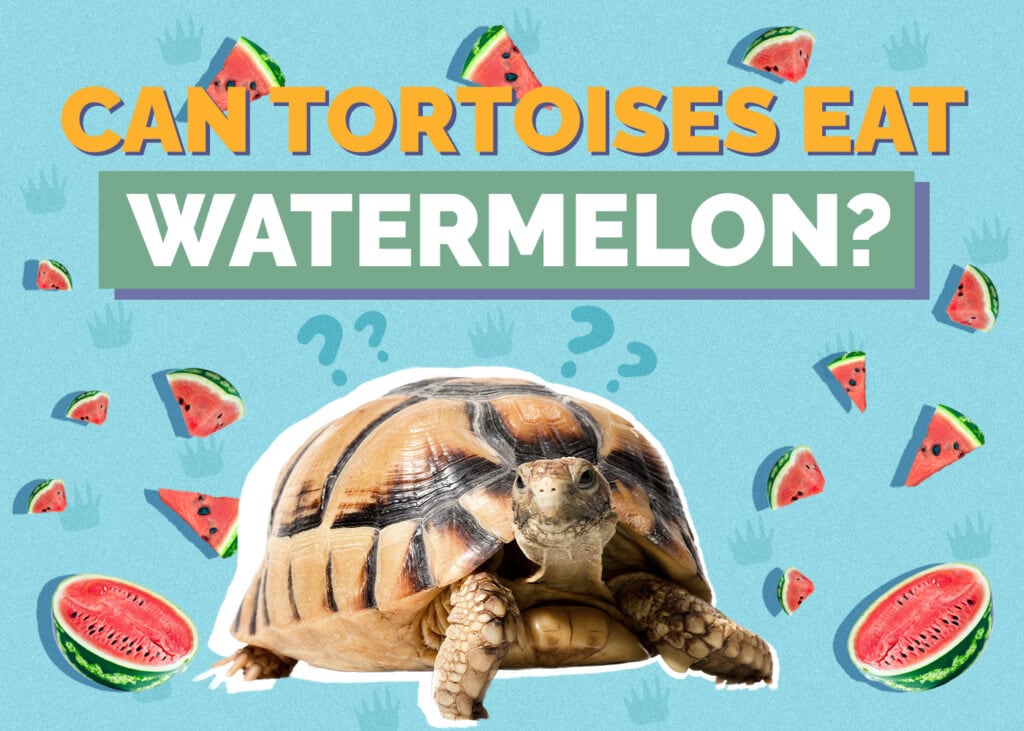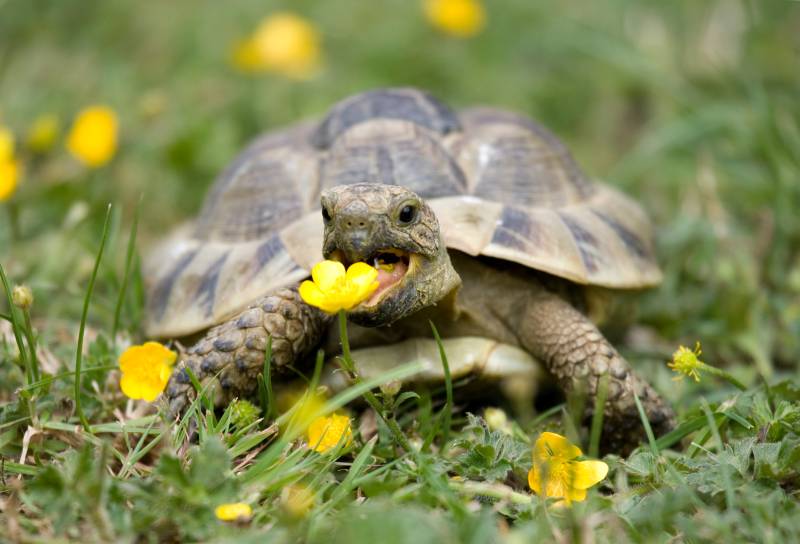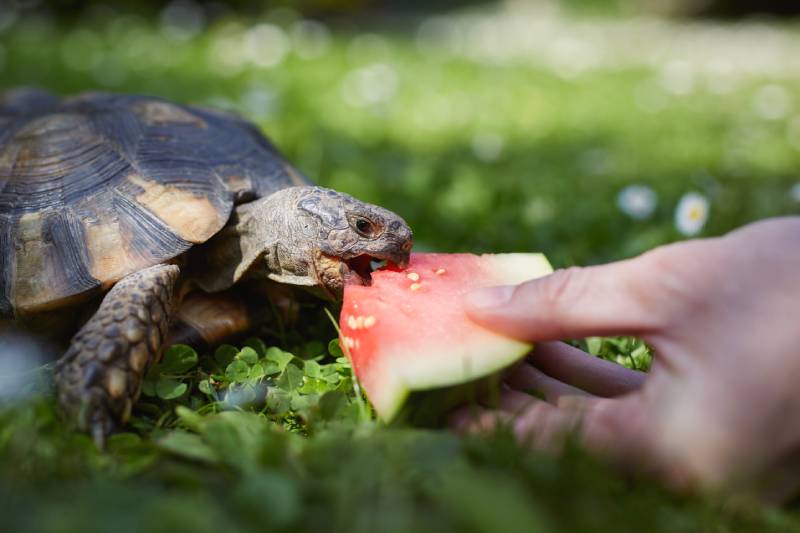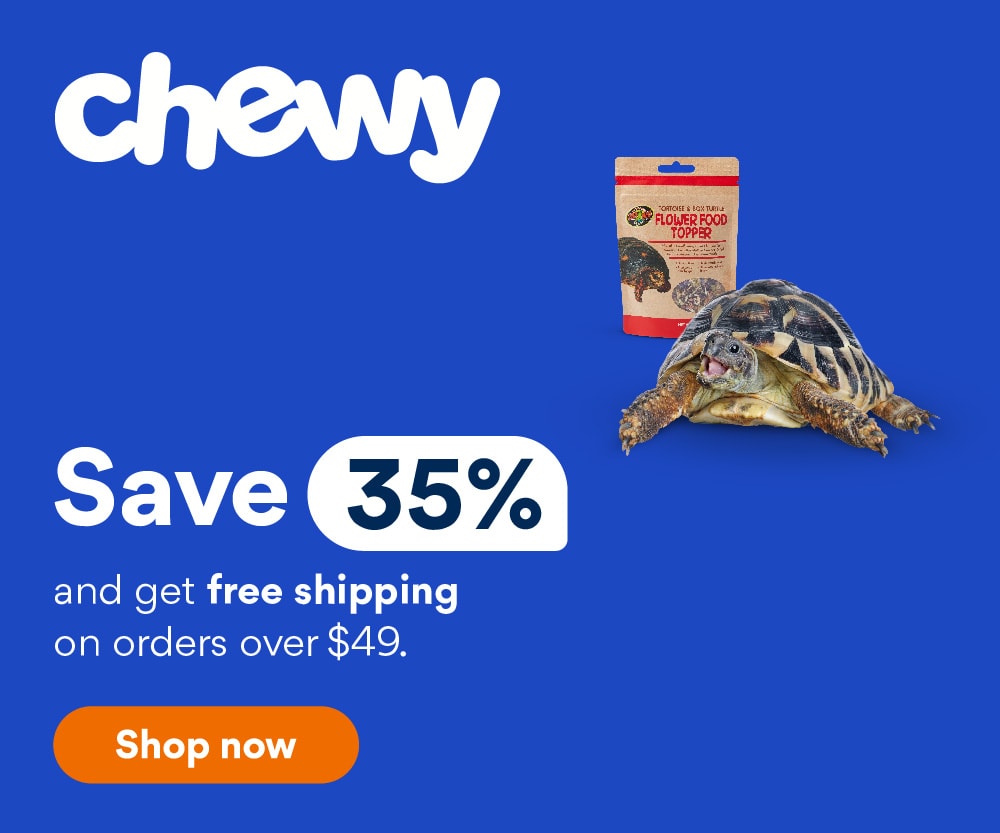Can Tortoises Eat Watermelon? Our Vet Explains
By Dr. Luqman Javed, DVM (Vet)
Updated on

Click to Skip Ahead
There are about 49 species of tortoises in existence, and these animals can be found living in a variety of different wild habitats around the world 1. They also have slightly different diets depending on where they live. One thing that all tortoises have in common, though, is that they are herbivores. Plants and flowers are always on the menu, though many tortoises will munch on fallen fruit if they come across any.
In captivity, tortoises don’t have much choice about what they eat, so it’s up to us caretakers to choose carefully for them! Fortunately, there are plenty of vegetables and a few fruits that you can feed your tortoise to help keep them happy and healthy. The overwhelming bulk of their diet comprises vegetables that offer them most of the nutrition they need, but certain fruits should be included for good measure and variety. So, can you feed watermelon to your tortoise? The short answer is yes, tortoises can eat watermelon, though it’s not as good as some other fruit options you should consider. Read on to learn more.
A Tortoise’s Diet
Though there are obvious differences between the nutritional requirements of your tortoise based on their age, the environment, their reproductive status, health status, and species, the following is a summary of their nutritional requirements in captivity.
- Vegetables – should comprise around 85% of your tortoise’s diet. Suitable vegetables include dark leafy greens such as mustard, collard, turnip tops, dandelions, bok-choy, roses, hibiscus, and cured alfalfa or timothy hay.
- Fruits – should comprise around 10% of your tortoise’s diet in most cases. However, it can be increased to around 20% for red and yellow-footed tortoises. Examples of acceptable fruits include grapes, oranges, pears, melons, strawberries, bananas, mangoes, and tomatoes.
- High Protein Foods – a small fraction (5%) of your tortoise’s diet should focus on meeting their protein needs with items like dry commercial tortoise pellets, tofu, scrambled eggs, and a few acceptable cereals. This amount can be increased to around 10% for the hinged-black, angulate, brown, and impressed tortoise.
From the above, it’s important to incorporate fruits into your tortoise’s diet. However, not all fruits are the same when it comes to the nutritional benefits they may offer your tortoise. Therefore, it’s important to analyze each fruit for its merits and drawbacks.
Let’s see how watermelon fares when it comes to your tortoise.

Watermelon & Tortoises
As the name suggests, watermelon mostly comprises water and is perhaps best known for its sweet flavor and being a summertime favorite snack. However, when it comes to our pets, it’s crucial to view the nutritional information of anything you wish to incorporate into your diet, whenever possible. 2
- Water:45 grams (g)
- Carbohydrates: 7.55 g
- Sugars (total):2 g
- Fat: 0.15 g
- Protein: 0.61 g
- Fiber: 0.4 g
- Calcium: 7 milligrams (mg)
- Phosphorus: 11 mg
The good news is that watermelon isn’t toxic for tortoises, and does offer some hydration. It’s also low in other compounds (chiefly, oxalates and goitrogens) which is always desirable in a tortoise’s diet.
However, there are two main drawbacks of watermelon which render it somewhat less appealing as a fruit.
- Calcium to phosphorus ratio: for most reptiles, calcium should be higher than phosphorus and though the exact requirements vary by species, calcium should typically be at least 1.5 to twice as abundant as phosphorus within the food item for it to be desirable.
- Sugar: the high amount of sugar in watermelon renders it somewhat unappealing from a nutritional standpoint, as tortoises do best on high amounts of low nutritional yielding forage. Diets high in nutritional value can prove detrimental to the health of your tortoise.
Therefore, watermelon should be considered an acceptable fruit when offered sparingly as a treat.
Feeding Your Tortoise Watermelon
If you want to offer your tortoise watermelon, there’s no harm in doing so, as long as you keep in mind that moderation is key.
It’s best to offer your tortoise watermelon as part of a fruit bowl, and not a standalone fruit. As a general rule of thumb, the higher the variety in your tortoise’s diet (including that of their vegetables), the better, as different foods offer varying levels of nutrition and therefore, make it more likely that your pet will receive a well-balanced diet that isn’t too high or too low in a specific nutrient.
As your tortoise should only be consuming fruits in a small amount (10% or so) per day, a small watermelon cube, around an inch on each side, should be sufficient for most adult medium-sized tortoises. Alternatively, you can feed your tortoise watermelon by holding a slice of watermelon and letting them enjoy a few bites. Because this fruit sludges easily, most owners prefer to offer their tortoise watermelon this way, as it minimizes the mess and cleanup.

It is best to not offer your tortoise watermelon every day and stick to a high variety of healthy fruits. Consider adding watermelon to your tortoise’s fruit bowl no more than twice a week, if necessary.
Tortoises shouldn’t be offered the skin or rind of a watermelon, as they usually can’t chew these parts well enough. Though seeds shouldn’t be an issue for most tortoises, they may spit them out if they find them unappealing, taste-wise, and therefore, it is best to remove the seeds before offering watermelon to your pet.
Though watermelon is obviously encased in a skin barrier that protects the flesh of the fruit from contamination, it is best to thoroughly wash the fruit before slicing it, pesticides, contaminants, or dirt on the skin can seep into the flesh of the fruit if you slice through with a knife without cleaning the exterior.
As always, keep in mind that it’s best to consult your exotic veterinarian to formulate a diet plan that works specifically for your pet tortoise. Remember that for tortoises, a diet too high in nutrition is just as detrimental as a diet that lacks specific nutrition. Therefore, professional input is highly recommended for establishing a safe diet protocol for your beloved pet.
Conclusion
Most tortoises can handle eating a small amount of watermelon occasionally and would likely enjoy doing so. This juicy fruit is hydrating but unfortunately isn’t without its downsides. Therefore, it’s a good idea to practice moderation if you’re considering adding it to their diet, even as an occasional treat.
Featured Image Credit: Fotografie – Schmidt, Shutterstock













